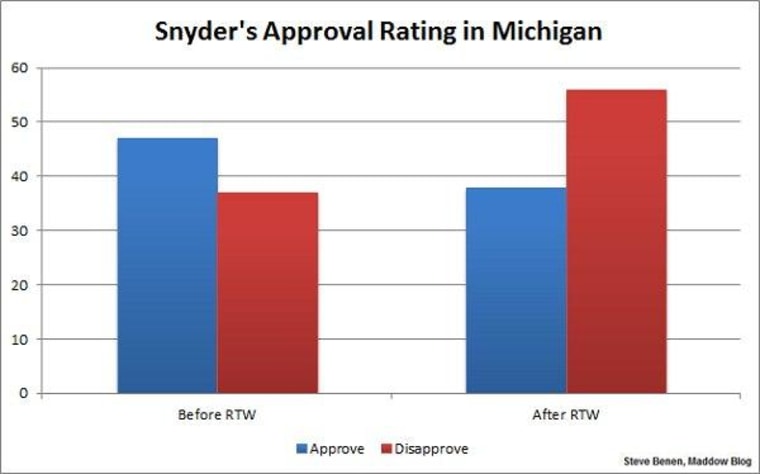A week before Election Day, Michigan Gov. Rick Snyder's (R) political standing looked quite good. He enjoyed a 47% approval rating and fairly comfortable leads against prospective Democratic challengers.
A lot can happen in a month. Since that poll was taken, the Republican governor abandoned his promise to voters and signed a brutal anti-union law, described by the right as a "right to work" measure. A new survey from Public Policy Polling shows the decision has taken a severe toll on Snyder's public standing.
The PPP results show Snyder's approval rating down to just 38%, while 56% disapprove, which suddenly makes him one of the nation's least popular governors. What's more, a 51% majority disapprove of the anti-union law Snyder promised not to pursue, but which he signed last week.
Making matters slightly worse for the Republican, in hypothetical matchups, Snyder "trails every Democrat we tested against him," even though the leading Democratic candidates aren't especially well known statewide (not one has name recognition above 50%).
Even Snyder's brand is shot. You may recall that he ran as a moderate technocrat with no interest in his party's culture war, describing himself as a "tough nerd." PPP found less than a third of Michigan voters consider the governor a "tough nerd" now.
Snyder still has two years before he'll face voters again, which is obviously an enormous amount of time in the context of campaign politics. But it's clear the governor's standing has plummeted, and would have been far stronger had he kept his word to his constituents.
